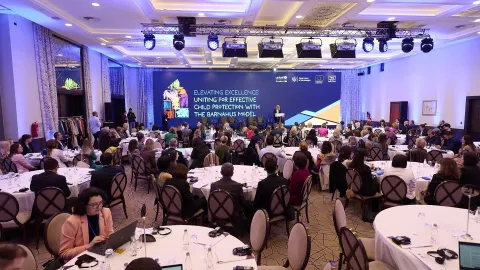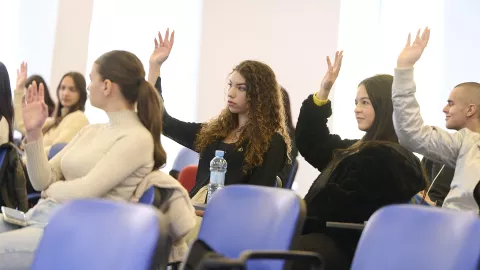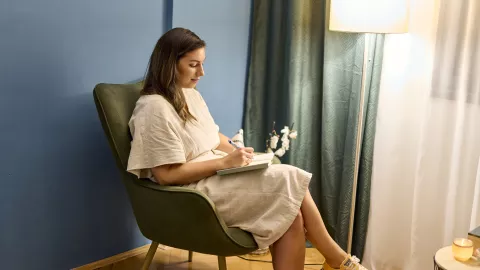SOS line: Sanela responds to children 24/7
In Montenegro, a psychologist from the National SOS phoneline for children and young people is providing professional counselling and assistance for children and young people
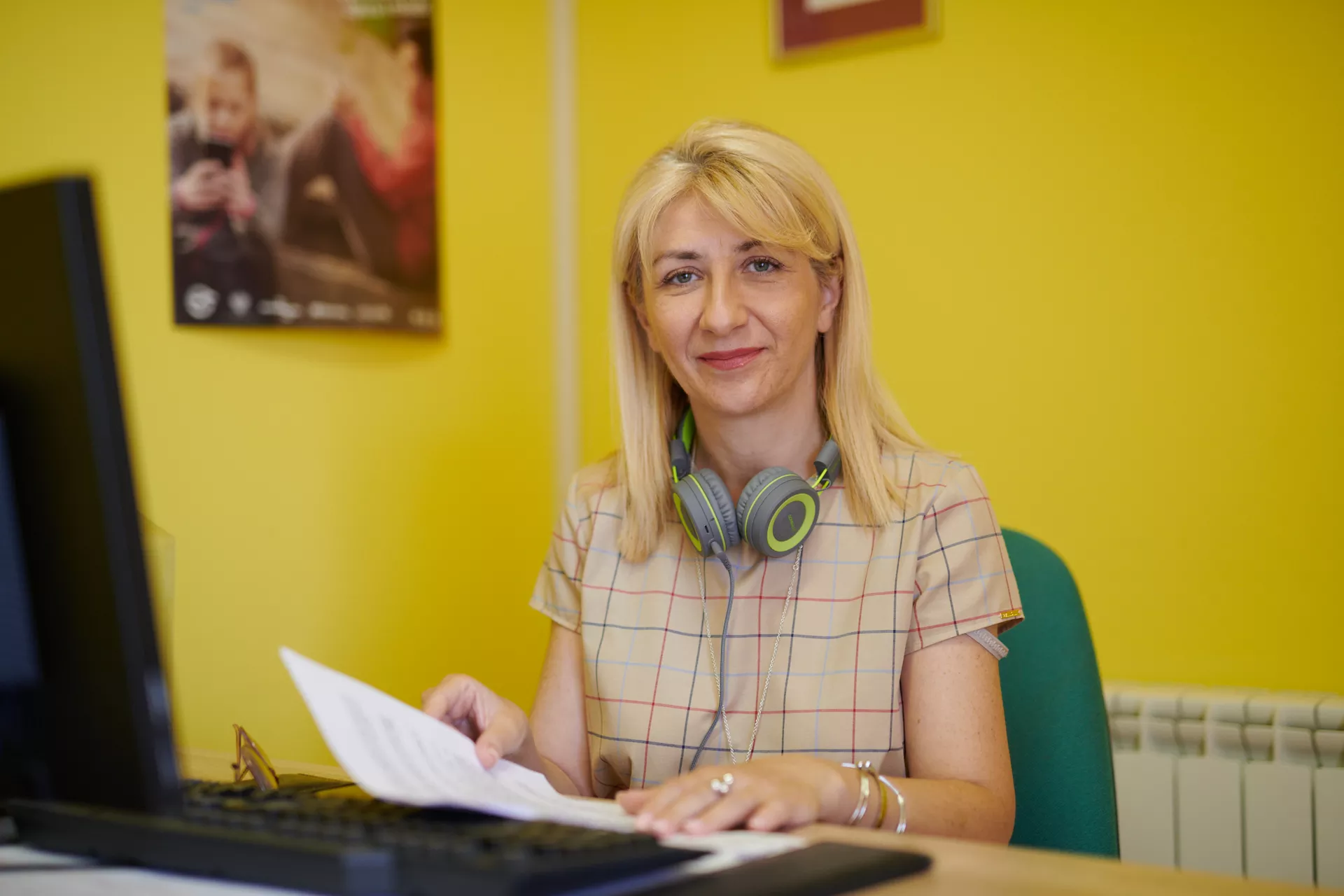
- Available in:
- Crnogorski
- English
- Shqip
Podgorica, 3 AUGUST 2021 – “Hello. This is the children’s line. How may I help you?” answers psychologist Sanela Josipovic in a kind voice, when the phone of the National SOS phoneline for children and young people rings.
Sanela runs the phoneline service, which was launched as one of the services within the “Mladost” Children’s Home in Bijela. Together with her colleagues, she provides expert advice and assistance for children and young people if they need important information, have a dilemma, or face a seemingly unsolvable problem.
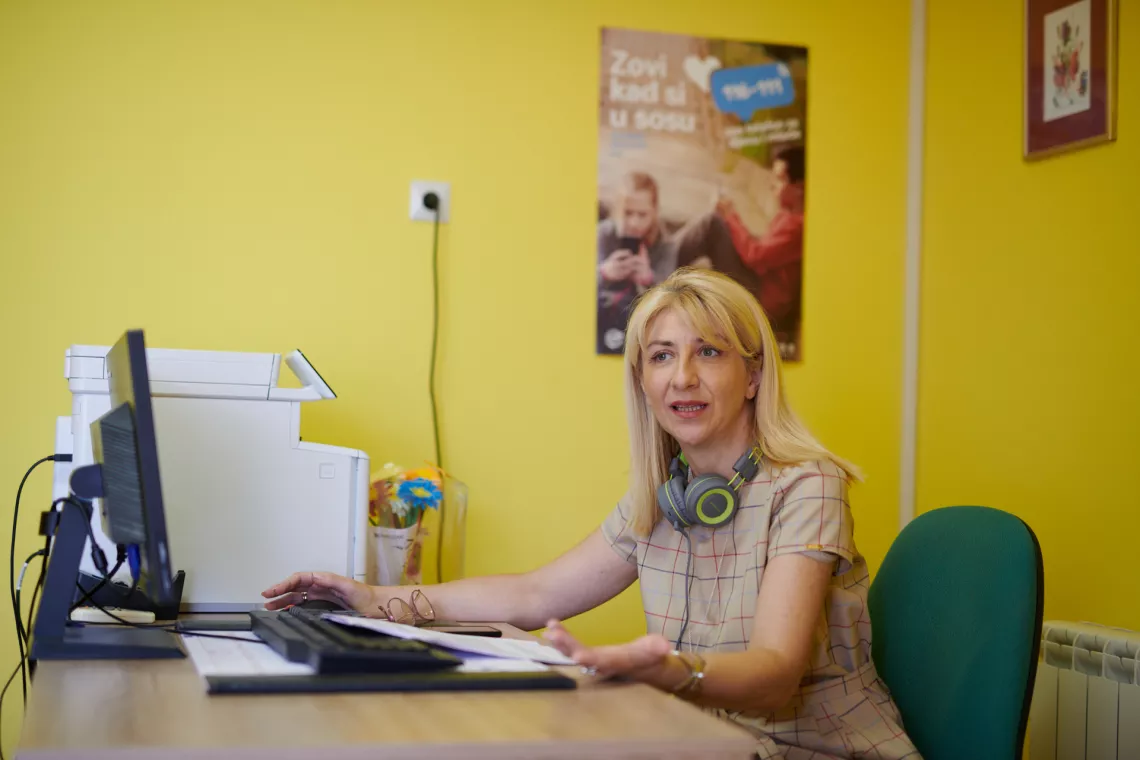
Calls to the SOS phoneline are anonymous and the content of the conversation remains only between me and the person who calls our number – 116 111. The topics our callers want to talk about are varied – from peer and partner relationships, through family and school problems, to issues of sexuality and addiction.
The line is free and available 24 hours a day, seven days a week.
Trained staff work on the SOS hotline in three shifts, and they are accepting of everything: silence on the other end of the line, jokes, bad words. Children often test out how the line functions and call several times before confiding in the counsellors. They check the truthfulness of what we say and whether they can really talk anonymously about whatever they want, without being met with surprise, condemnation, ridicule or criticism.
Experts point out that mental health problems among children and young people are on the rise, and this means that such support services are needed now, more than ever. These problems range from emotional and behavioural disorders, to difficulties in cognitive functioning and maintaining social relationships. Also, the UN Rapid Social Impact Assessment of the COVID-19 outbreak in Montenegro from April 2020 identified that young people consider education (51%), health services (47%) and psychological support/mental health support (31%) as the most needed public services.
Through her work with the SOS phoneline, Sanela has become better acquainted with the problems that children face growing up, and understands why the availability of counselling support is extremely important.
Children engage seriously with counselling. No matter how much professional experience you have in working with children, you can be surprised again and again when you hear what they tell you. We learn something new from every conversation with them.
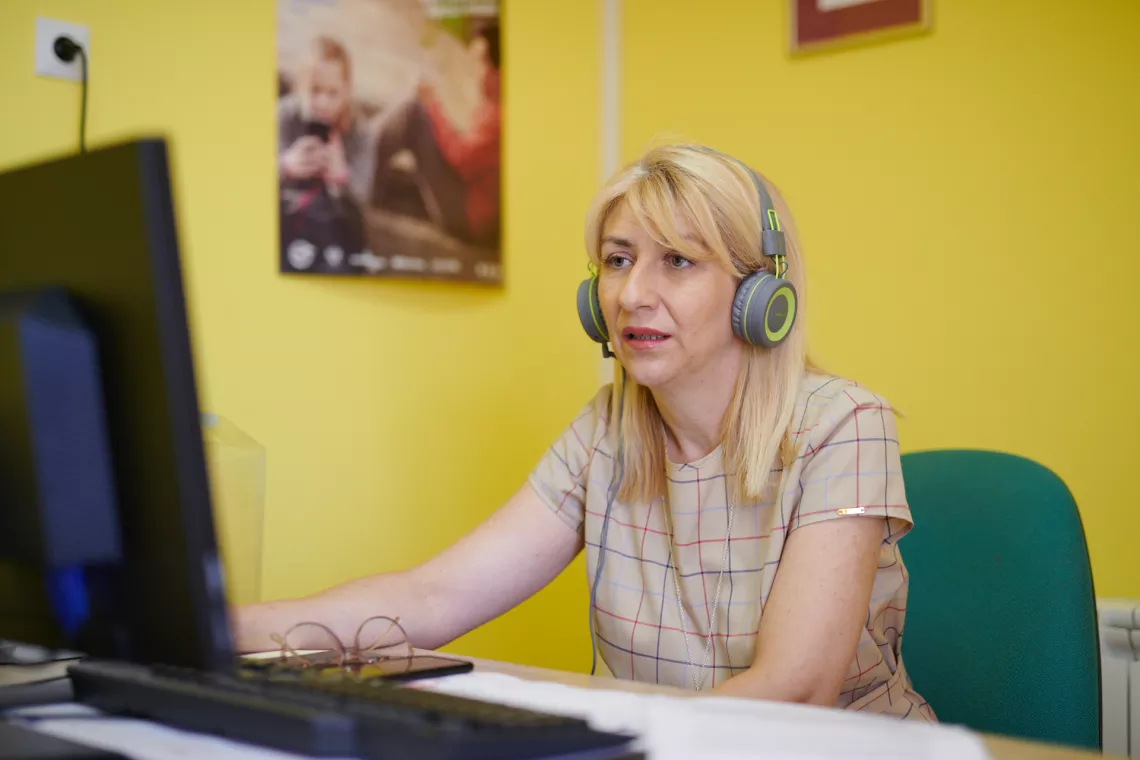
UNICEF Child Protection Officer Nada Djurovic Martinovic believes that the phoneline and other counselling services are especially important in times of uncertainty and in crisis situations. For children and young people, the unknowns and dilemmas created by the COVID-19 pandemic have added to the existential and emotional problems they would typically experience in the sensitive period of growing up.
The SOS phoneline has an important role in empowering children, preserving their mental health, and preventing problems by offering counselling and providing information.
116 111 is a universal telephone number set up to help children and young people across Europe. Every year, more than 20 million children seek help through this phone line, and Montenegro is one of 139 countries that offer this form of help to children and young people. The “Mladost” Children’s Home in Bijela is the only institution in Montenegro licensed to provide an SOS telephone service.
The SOS phoneline project is part of the Regional Programme to Mitigate the Impact of the COVID-19 Pandemic on the Lives of Children and Parents in the Western Balkans and Turkey, and is financially supported by the European Union. Through this programme, UNICEF will continue to strengthen national systems to ensure continuity in the provision of core social and health services for children in the immediate and longer-term recovery from the COVID-19 pandemic.

